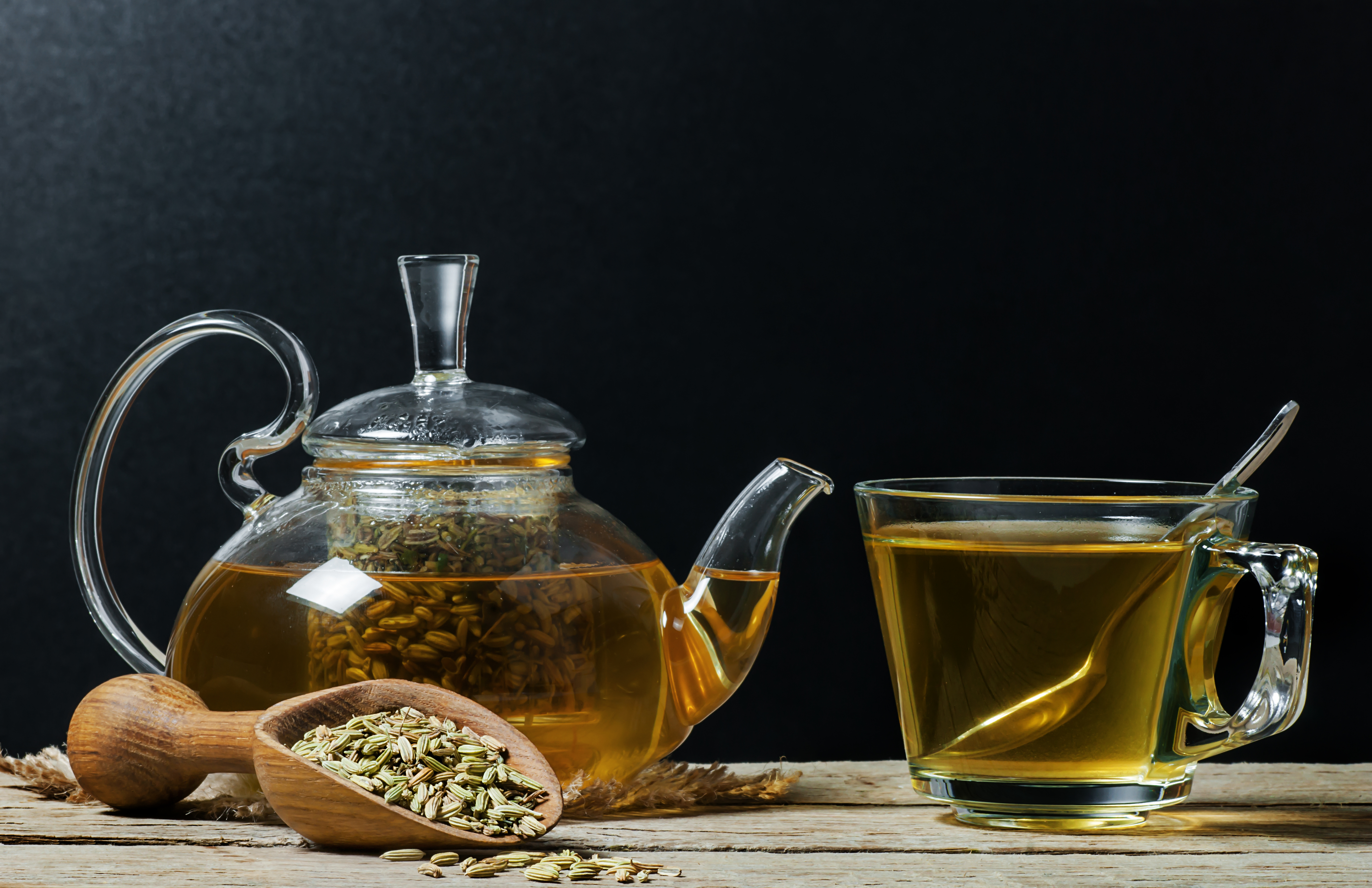
6 Teas to Drink for IBS
Irritable bowel syndrome (IBS) is a long-term gastrointestinal disorder, causing persistent discomfort in its patients. Doctors recommend drinking certain teas can ease some of the symptoms. Drinking tea is associated with relaxation and relieving mental stress. Besides diet, mental stress and anxiety also aggravate the symptoms of IBS. A great dietary tip for IBS is to add teas to regular consumption as they help treat physical symptoms like abdominal pain and muscle cramps.
Trying and testing the effects of different teas on your body and adding or eliminating them from your dietary habits based on your body’s response is a helpful tip for IBS patients.
Teas beneficial for IBS include the following varieties:
1. Fennel tea
Fennel has been used since ancient times to relieve gas, bloating, and intestinal spasms. It’s beneficial to relax the intestinal muscles and relieve constipation. Fennel can be combined with peppermint, curcumin, caraway seeds, or wormwood to make tea. Fennel is a high-FODMAP food, so try it and continue only if it suits you.
To make fennel tea, use a pestle and mortar to crush the fennel seeds. Pour one cup of hot water over 2 tablespoons of crushed fennel seeds. Let it steep for 10 minutes, and your tea is ready. Fennel tea bags are also available to brew your tea.
2. Chamomile tea
Chamomile is a fantastic therapeutic herbal remedy for many health conditions. It is high in anti-inflammatory properties, which help soothe muscle cramps and digestive disorders. Chamomile helps relieve gas and intestinal irritation as well. If you are prone to symptoms of IBS, consume chamomile tea and you will feel the benefits after a couple of weeks. It also relaxes the muscles in the body, acting as a stress reliever. Chamomile tea bags are easily available in stores.
3. Turmeric tea
Turmeric is very well known for its digestive and healing properties and is a powerful antioxidant. Turmeric capsules or tea can be consumed by those suffering from IBS. Studies have proven it to reduce discomfort and improve bowel movement. To make the tea, boil fresh turmeric root or turmeric powder in water and strain it before consuming. Turmeric can also be added to foods while cooking.
4. Peppermint tea
Peppermint herb is used to relieve digestive issues. Peppermint tea helps soothe the intestines, relieve abdominal pain, and reduce bloating. To brew peppermint tea, buy peppermint tea bags or loose peppermint tea. You can also add a drop of peppermint essential oil to a cup of herbal tea or a cup of hot water.
5. Anise tea
Anise has been traditionally used to treat diseases and address other health concerns. It is a powerful muscle relaxant and a laxative as well, with analgesic and anti-inflammatory properties. You just have to grind anise seeds with a pestle and mortar, add 1 tablespoon of crushed anise seeds to 2 cups of boiling water, and simmer for 5 minutes and drink it warm.
6. Ginger tea
Ginger is commonly used in traditional Chinese medicine to treat symptoms associated with an upset digestive system. It extracts help decrease inflammation, making the stomach lining stronger and promoting movement in the intestines. Consuming ginger tea is a helpful dietary tip to follow for IBS patients, and it can be made using fresh or dried ginger.



